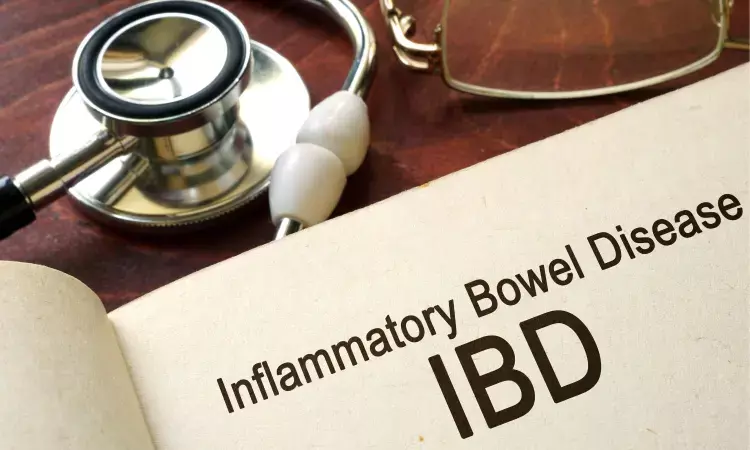- Home
- Medical news & Guidelines
- Anesthesiology
- Cardiology and CTVS
- Critical Care
- Dentistry
- Dermatology
- Diabetes and Endocrinology
- ENT
- Gastroenterology
- Medicine
- Nephrology
- Neurology
- Obstretics-Gynaecology
- Oncology
- Ophthalmology
- Orthopaedics
- Pediatrics-Neonatology
- Psychiatry
- Pulmonology
- Radiology
- Surgery
- Urology
- Laboratory Medicine
- Diet
- Nursing
- Paramedical
- Physiotherapy
- Health news
- Fact Check
- Bone Health Fact Check
- Brain Health Fact Check
- Cancer Related Fact Check
- Child Care Fact Check
- Dental and oral health fact check
- Diabetes and metabolic health fact check
- Diet and Nutrition Fact Check
- Eye and ENT Care Fact Check
- Fitness fact check
- Gut health fact check
- Heart health fact check
- Kidney health fact check
- Medical education fact check
- Men's health fact check
- Respiratory fact check
- Skin and hair care fact check
- Vaccine and Immunization fact check
- Women's health fact check
- AYUSH
- State News
- Andaman and Nicobar Islands
- Andhra Pradesh
- Arunachal Pradesh
- Assam
- Bihar
- Chandigarh
- Chattisgarh
- Dadra and Nagar Haveli
- Daman and Diu
- Delhi
- Goa
- Gujarat
- Haryana
- Himachal Pradesh
- Jammu & Kashmir
- Jharkhand
- Karnataka
- Kerala
- Ladakh
- Lakshadweep
- Madhya Pradesh
- Maharashtra
- Manipur
- Meghalaya
- Mizoram
- Nagaland
- Odisha
- Puducherry
- Punjab
- Rajasthan
- Sikkim
- Tamil Nadu
- Telangana
- Tripura
- Uttar Pradesh
- Uttrakhand
- West Bengal
- Medical Education
- Industry
Aspirin tied to reduced risk of mortality, sepsis, and shock among IBD patients

Inflammatory bowel disease (IBD) is a chronic inflammatory disorder affecting the gastrointestinal tract, including Crohn's disease (CD) and ulcerative colitis (UC). IBD affects over 1 million people in the US and is linked to increased short- and long-term mortality. CD and UC are influenced by microbial, genetic, immune, and environmental factors.
In a study published in the International Journal of Colorectal Disease, Humzah Iqbal et al. and colleagues found that aspirin usage in IBD patients is associated with a reduced risk of mortality, sepsis, and shock. Aspirin may offer protective effects in IBD patients.
IBD can increase the mortality risk. Aspirin is an anti-inflammatory drug used for primary prevention of cardiovascular events. However, the impact of aspirin use on significant outcomes in IBD remains unclear.
The NIS (National Inpatient Sample) 2016-2020 was used to identify adult IBD patients, with data collected on demographics, hospital characteristics, and comorbidities. The study analyzed in-hospital mortality, sepsis, shock, ICU admission, and surgery needs using multivariate logistic regression.
The study could be summarised as follows:
- The study included 1,524,820 IBD hospitalizations.
- 137,430 patients were long-term aspirin users.
- In the aspirin group, 34% of patients were aged > 65 years, 56% were female, 78% were White, and 36% had Medicare insurance.
- Aspirin users had a lower incidence of in-hospital mortality (1.6% vs 1.4%), sepsis (2.5% vs 2.9%), shock (2.9% vs 3.4%), ICU admission (2.6% vs 2.9%), and surgery need (2.1% vs 4.2%).
- After adjusting for confounders, aspirin was associated with a reduction in mortality having adjusted odds ratio of 0.49.
They said, Our study used an extensive NIS database to assess the outcomes of patients hospitalized with IBD taking aspirin. Previous literature has shown that White patients are more likely to be taking long-term aspirin even when controlling for cardiovascular risk factors. These findings suggest that the study sample is representative of the population taking aspirin. The study also found lower odds of surgical intervention in patients with long-term aspirin use, which may be due to the effect of aspirin on the disease activity among IBD patients. The incidence of surgical intervention in the study was 4%.
Reference:
Iqbal H et al. The impact of aspirin use on outcomes in patients with inflammatory bowel disease: Insights from a national database. Int J Colorectal Dis. 2023 Dec 20;39(1):6
BDS, MDS in Periodontics and Implantology
Dr. Aditi Yadav is a BDS, MDS in Periodontics and Implantology. She has a clinical experience of 5 years as a laser dental surgeon. She also has a Diploma in clinical research and pharmacovigilance and is a Certified data scientist. She is currently working as a content developer in e-health services. Dr. Yadav has a keen interest in Medical Journalism and is actively involved in Medical Research writing.
Dr Kamal Kant Kohli-MBBS, DTCD- a chest specialist with more than 30 years of practice and a flair for writing clinical articles, Dr Kamal Kant Kohli joined Medical Dialogues as a Chief Editor of Medical News. Besides writing articles, as an editor, he proofreads and verifies all the medical content published on Medical Dialogues including those coming from journals, studies,medical conferences,guidelines etc. Email: drkohli@medicaldialogues.in. Contact no. 011-43720751


